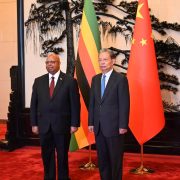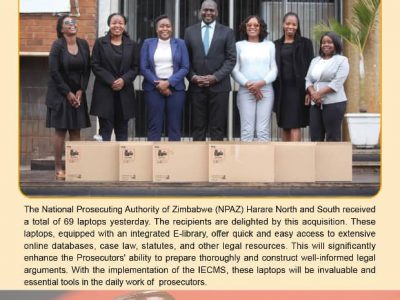The Zimbabwe Stock Exchange (ZSE) says there has been a significant improvement in repatriation of funds by foreign investors following the reintroduction of the foreign currency auction system managed by the Reserve Bank of Zimbabwe (RBZ).
Capital markets experts say this is making the ZSE more attractive compared to other regional peers.
Last year the RBZ re-introduced the foreign currency auction system as part of efforts to improve availability of foreign currency on the official market as well as to tame the exchange rate and inflation.
The auction system has been running for the past year and has been credited to the currency stability being enjoyed in the market.This has also addressed one of the challenges the country was facing, which is difficulties in foreign repatriation, which frustrated some investors resulting in a flight of foreign investors from the local bourse.
With the implementation of the auction system, ZSE chief executive officer Justin Bgoni acknowledged the improvements in repatriation of dividends by investors, which is now increasing the allure of the country’s capital markets.
“There has been a lot of improvements so far when it comes to taking their money such that one big investor in South Africa agreed that it was now easier to take out funds from Zimbabwe than in Nigeria,” he told stakeholders at the recently held Zimbabwe Finance Conference.
“We also believe that if money can be repatriated easily, it can also come back easily,” he said.
Apart from increasing its competitiveness to foreign investors, Mr Bgoni added efforts were being made to lure more companies onto the bourse at a time there had been a listings drought.
This is not prevalent to Zimbabwe alone.
According to consolidated data on SADC stock exchanges 2020 fourth quarter performance, it shows regional exchanges are starved of new equity listings with only eight recorded across the region.
Of these, Seychelles Stock Exchange (MERJ) accounted for five listings while Dar es Salaam Stock Exchange (DSE) and Johannesburg Stock Exchange (JSE) accounted for a single listing each. In line with this, the regional stock exchanges have committed to enhancing the capital markets and increase their allure as preferred investment destinations for both local and foreign investors as well as attract new listings.
At their recently held 58th bi-annual meeting of the Committee of SADC Stock Exchanges, the secretariat emphasised on the need to enhance financial integration.
Back home, the ZSE has been working on various initiatives to increase investment options on the local bourse and make it an attractive investment option for both retail and institutional investors as well as attract more listings.
Mr Bgoni indicated the obtaining stable economic conditions made listing on the local bourse a more attractive option for local companies to raise capital. As such, the exchange is hopeful of now listings in the near future.










Comments